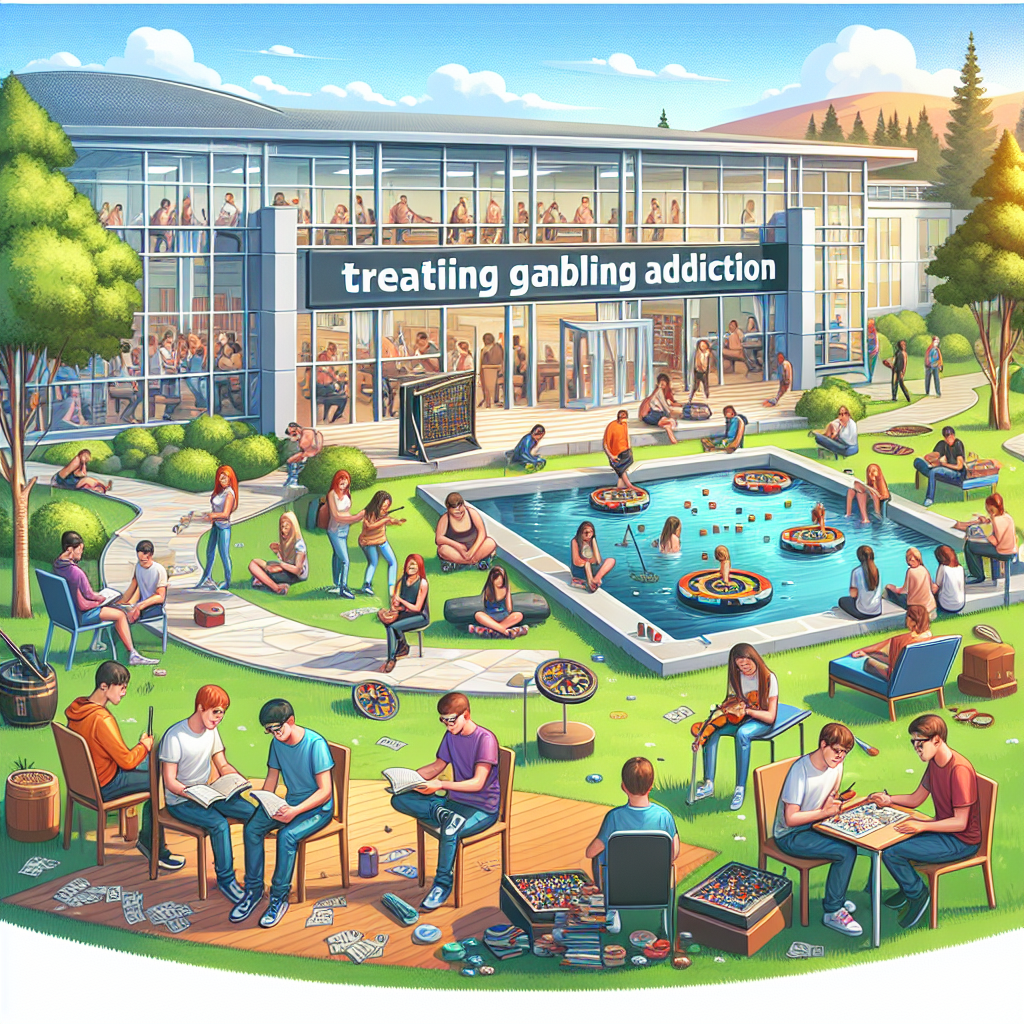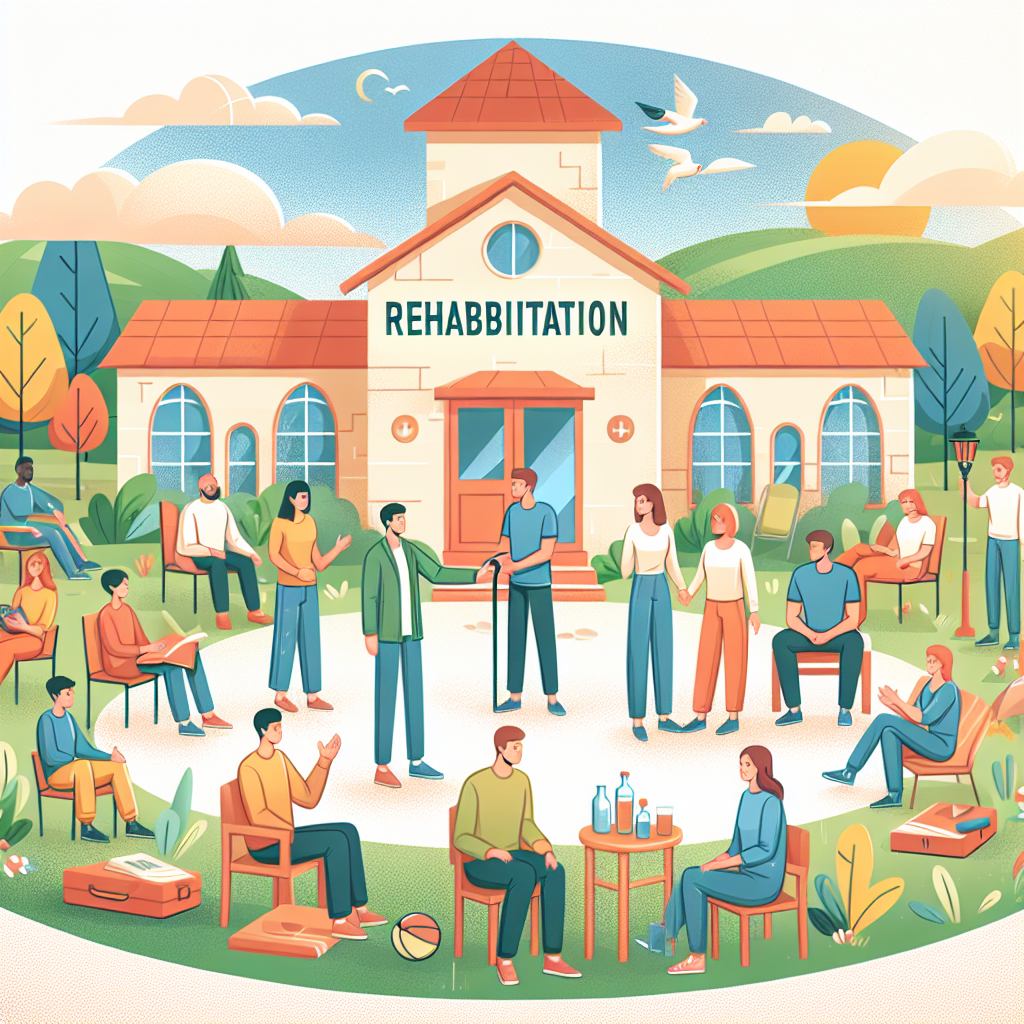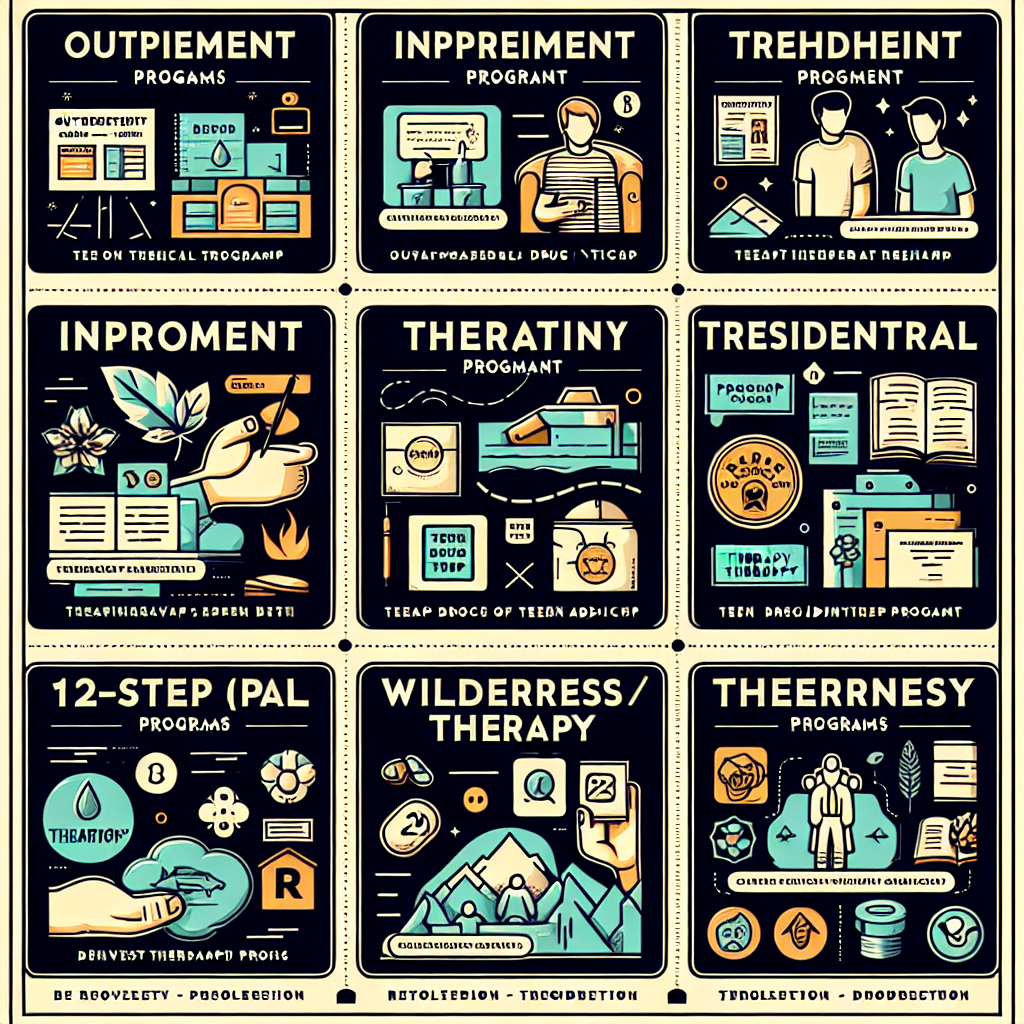-
Table of Contents

“Rehab: Guiding Teens from Gambling Despair to Hopeful Futures”
Introduction
The Role of Rehab in Treating Teenage Gambling Addiction
Teenage gambling addiction is an increasingly prevalent issue that poses significant risks to the mental, emotional, and financial well-being of young individuals. As the accessibility of gambling through online platforms and social media continues to rise, so does the potential for adolescents to develop problematic gambling behaviors. Rehabilitation programs play a crucial role in addressing this growing concern by providing structured, evidence-based interventions tailored to the unique needs of teenagers. These programs aim to help young individuals understand the underlying causes of their addiction, develop healthier coping mechanisms, and rebuild their lives free from the grip of gambling. Through a combination of therapy, education, and support, rehab centers offer a comprehensive approach to treating teenage gambling addiction, fostering long-term recovery and promoting overall well-being.
The Importance of Early Intervention in Teenage Gambling Addiction Rehab
Teenage gambling addiction is a growing concern that demands immediate attention and intervention. The allure of quick money, combined with the accessibility of online gambling platforms, has made it easier than ever for teenagers to fall into the trap of gambling addiction. Early intervention is crucial in addressing this issue, and rehab plays a pivotal role in helping young individuals regain control over their lives.
Recognizing the signs of gambling addiction in teenagers is the first step towards early intervention. Parents, teachers, and peers must be vigilant in identifying behaviors such as an obsession with gambling, lying about gambling activities, and neglecting responsibilities. Once these signs are detected, it is essential to approach the situation with empathy and understanding, rather than judgment. This compassionate approach can encourage teenagers to open up about their struggles and seek the help they need.
Rehab centers specializing in teenage gambling addiction offer a structured environment where young individuals can receive the support and guidance necessary to overcome their addiction. These centers employ a multidisciplinary approach, combining therapy, education, and recreational activities to address the root causes of addiction and promote healthy coping mechanisms. By providing a safe and supportive space, rehab centers enable teenagers to break free from the cycle of addiction and rebuild their lives.
One of the key components of rehab for teenage gambling addiction is therapy. Cognitive-behavioral therapy (CBT) is particularly effective in helping teenagers understand the thought patterns and behaviors that contribute to their addiction. Through CBT, they learn to identify triggers, develop healthier coping strategies, and build resilience against future temptations. Additionally, family therapy is often incorporated to address any underlying family dynamics that may have contributed to the addiction. By involving the entire family in the recovery process, rehab centers foster a supportive network that can significantly enhance the teenager’s chances of long-term success.
Education is another vital aspect of rehab for teenage gambling addiction. Many teenagers are unaware of the risks associated with gambling and the potential consequences of their actions. Rehab centers provide educational programs that inform teenagers about the dangers of gambling, the impact it can have on their lives, and the importance of making informed decisions. By equipping teenagers with knowledge, rehab centers empower them to make healthier choices and avoid falling back into the trap of addiction.
Recreational activities also play a crucial role in the rehab process. Engaging in sports, arts, and other hobbies can help teenagers rediscover their passions and interests, providing them with a sense of purpose and fulfillment. These activities serve as healthy alternatives to gambling, offering teenagers a positive outlet for their energy and emotions. Moreover, participating in group activities fosters a sense of camaraderie and support among peers, reinforcing the idea that they are not alone in their journey towards recovery.
The importance of early intervention in teenage gambling addiction rehab cannot be overstated. By addressing the issue at its onset, we can prevent the long-term consequences that often accompany addiction, such as academic failure, strained relationships, and mental health issues. Rehab centers provide a comprehensive and holistic approach to treatment, addressing the physical, emotional, and psychological aspects of addiction. Through therapy, education, and recreational activities, teenagers can develop the skills and resilience needed to overcome their addiction and lead fulfilling lives.
In conclusion, early intervention in teenage gambling addiction is essential for effective treatment and long-term recovery. Rehab centers play a crucial role in providing the necessary support and guidance to help teenagers break free from the cycle of addiction. By recognizing the signs, approaching the situation with empathy, and utilizing a multidisciplinary approach, we can empower teenagers to overcome their addiction and build a brighter future.
How Rehab Programs Address the Unique Challenges of Teenage Gambling Addiction
Teenage gambling addiction is a growing concern that demands specialized attention and intervention. As the digital age makes gambling more accessible through online platforms and mobile apps, teenagers are increasingly exposed to the risks associated with this behavior. Rehab programs play a crucial role in addressing the unique challenges of teenage gambling addiction, offering a structured and supportive environment where young individuals can reclaim control over their lives.
One of the primary ways rehab programs address teenage gambling addiction is by providing a comprehensive assessment of the individual’s situation. This initial evaluation helps to identify the extent of the addiction, any co-occurring mental health issues, and the specific triggers that lead to gambling behavior. By understanding the root causes, rehab professionals can tailor a treatment plan that meets the unique needs of each teenager, ensuring a more effective and personalized approach to recovery.
Moreover, rehab programs emphasize the importance of education and awareness. Teenagers often lack a full understanding of the risks and consequences associated with gambling. Through educational sessions, they learn about the psychological and financial impacts of gambling addiction, as well as the potential legal ramifications. This knowledge empowers them to make informed decisions and recognize the importance of seeking help.
In addition to education, rehab programs incorporate various therapeutic interventions to address the psychological aspects of addiction. Cognitive-behavioral therapy (CBT) is particularly effective in helping teenagers identify and change negative thought patterns and behaviors associated with gambling. By developing healthier coping mechanisms, they can better manage stress and avoid the temptation to gamble. Group therapy sessions also provide a supportive community where teenagers can share their experiences, gain insights from others, and build a network of peers who understand their struggles.
Family involvement is another critical component of rehab programs for teenage gambling addiction. Addiction often affects not just the individual but also their loved ones. Family therapy sessions help to rebuild trust, improve communication, and create a supportive home environment that fosters recovery. Parents and siblings learn how to provide appropriate support without enabling the addictive behavior, which is essential for long-term success.
Furthermore, rehab programs recognize the importance of addressing the social and environmental factors that contribute to teenage gambling addiction. Many teenagers turn to gambling as a way to escape from academic pressures, social isolation, or family conflicts. Rehab programs offer life skills training and recreational activities that promote healthy alternatives to gambling. By engaging in sports, arts, or other hobbies, teenagers can discover new interests and build self-esteem, reducing the likelihood of relapse.
After completing a rehab program, ongoing support is vital to maintaining recovery. Many programs offer aftercare services, such as continued counseling, support groups, and mentorship opportunities. These resources provide a safety net for teenagers as they transition back to their daily lives, helping them to stay focused on their recovery goals and navigate any challenges that arise.
In conclusion, rehab programs play an indispensable role in treating teenage gambling addiction by addressing the unique challenges faced by young individuals. Through comprehensive assessments, education, therapeutic interventions, family involvement, and ongoing support, these programs offer a holistic approach to recovery. By empowering teenagers with the tools and knowledge they need, rehab programs inspire hope and pave the way for a healthier, addiction-free future.
Q&A
1. How does rehab help in treating teenage gambling addiction?
Rehab provides a structured environment where teenagers can receive therapy, education, and support to address the underlying issues contributing to their gambling addiction. It often includes cognitive-behavioral therapy (CBT), family counseling, and peer support groups to help teens develop healthier coping mechanisms and prevent relapse.
2. What specific therapies are used in rehab for teenage gambling addiction?
Specific therapies used in rehab for teenage gambling addiction include cognitive-behavioral therapy (CBT) to change harmful gambling behaviors and thought patterns, motivational interviewing to enhance the teen’s motivation to change, and family therapy to address family dynamics and support systems.
Conclusion
Rehabilitation plays a crucial role in treating teenage gambling addiction by providing a structured environment where young individuals can receive comprehensive care. This includes psychological counseling, behavioral therapy, and support groups that address the underlying issues contributing to the addiction. Rehab programs also educate teens on coping mechanisms and life skills to prevent relapse, fostering long-term recovery and healthier lifestyle choices. By offering a multifaceted approach, rehabilitation helps teenagers regain control over their lives and reduces the risk of future gambling-related problems.



